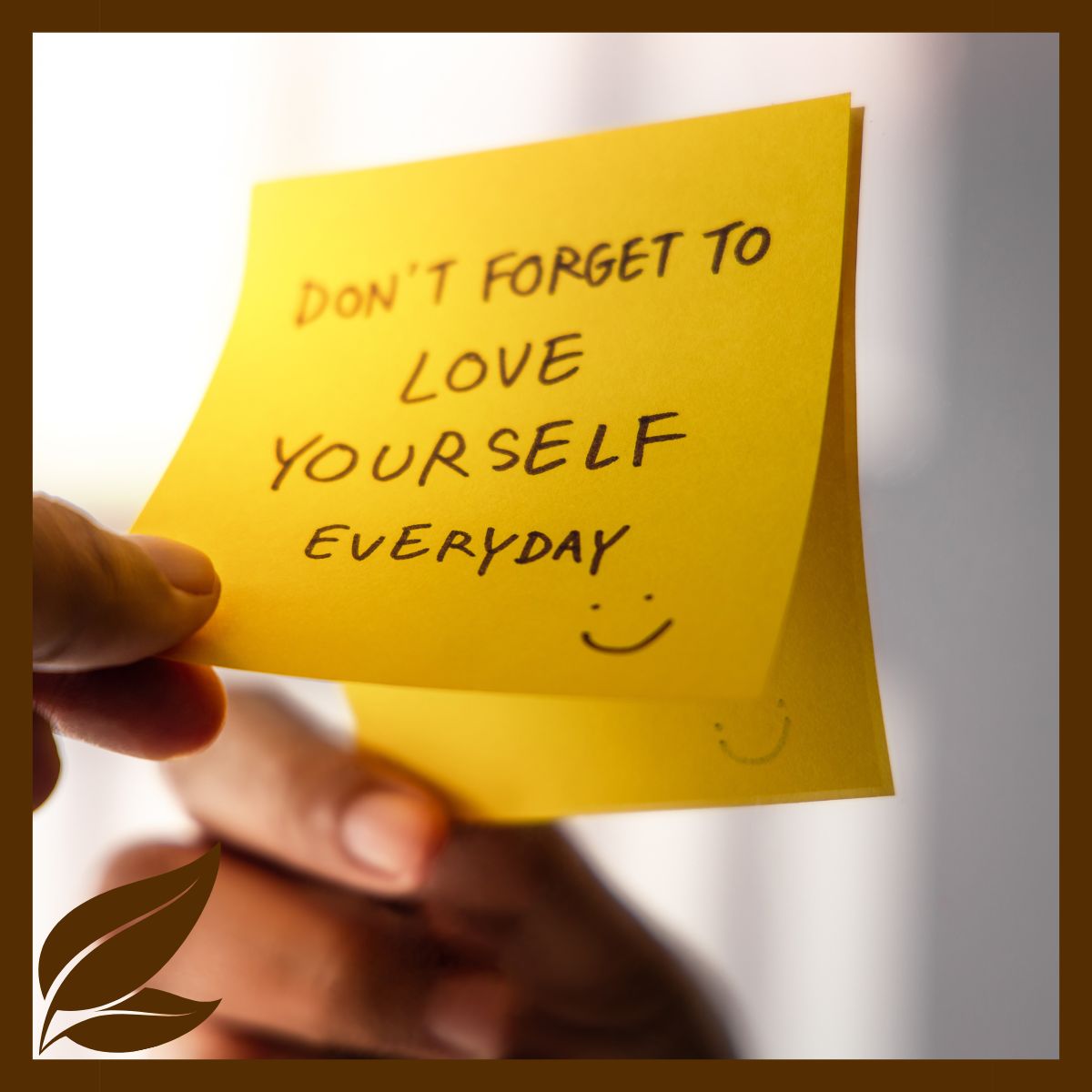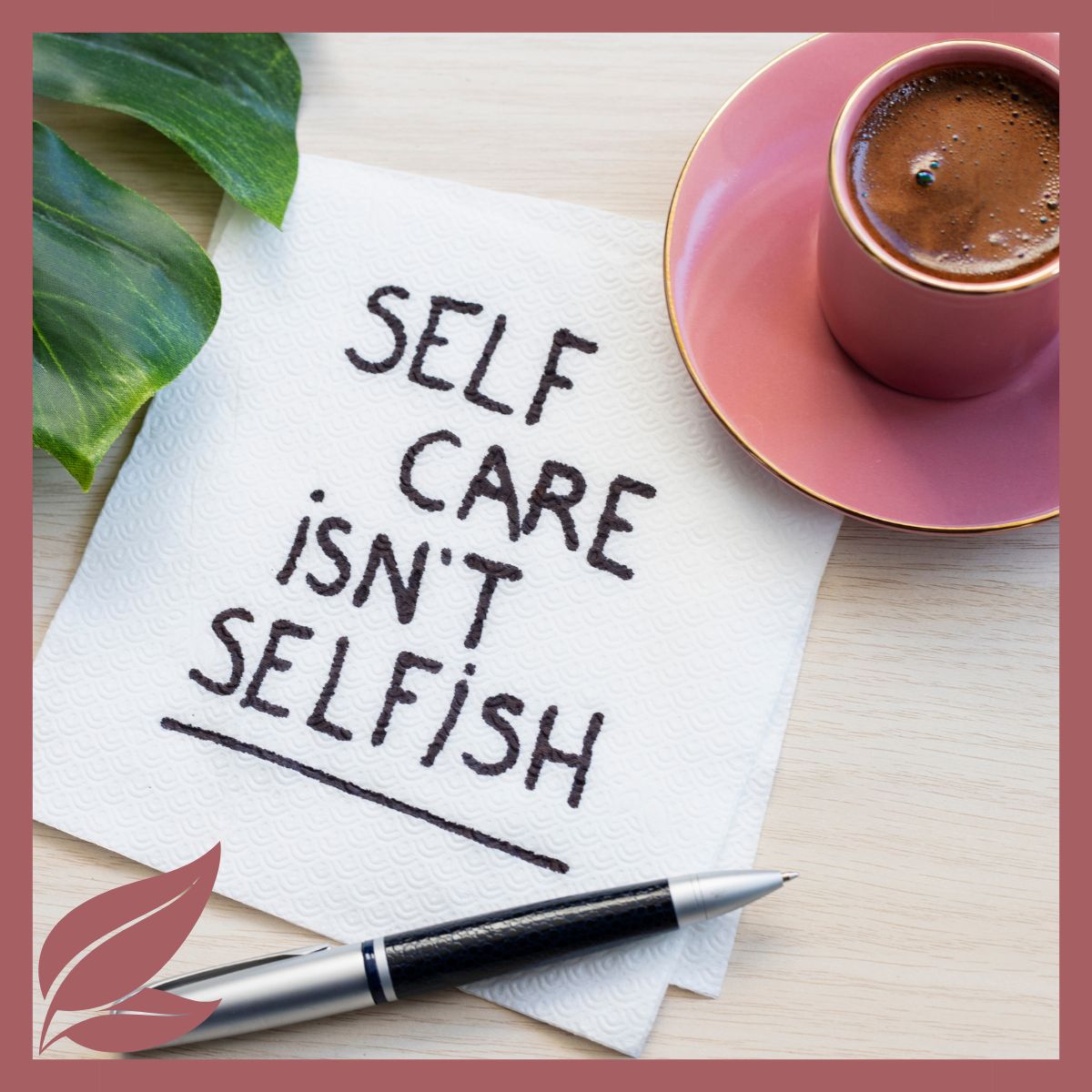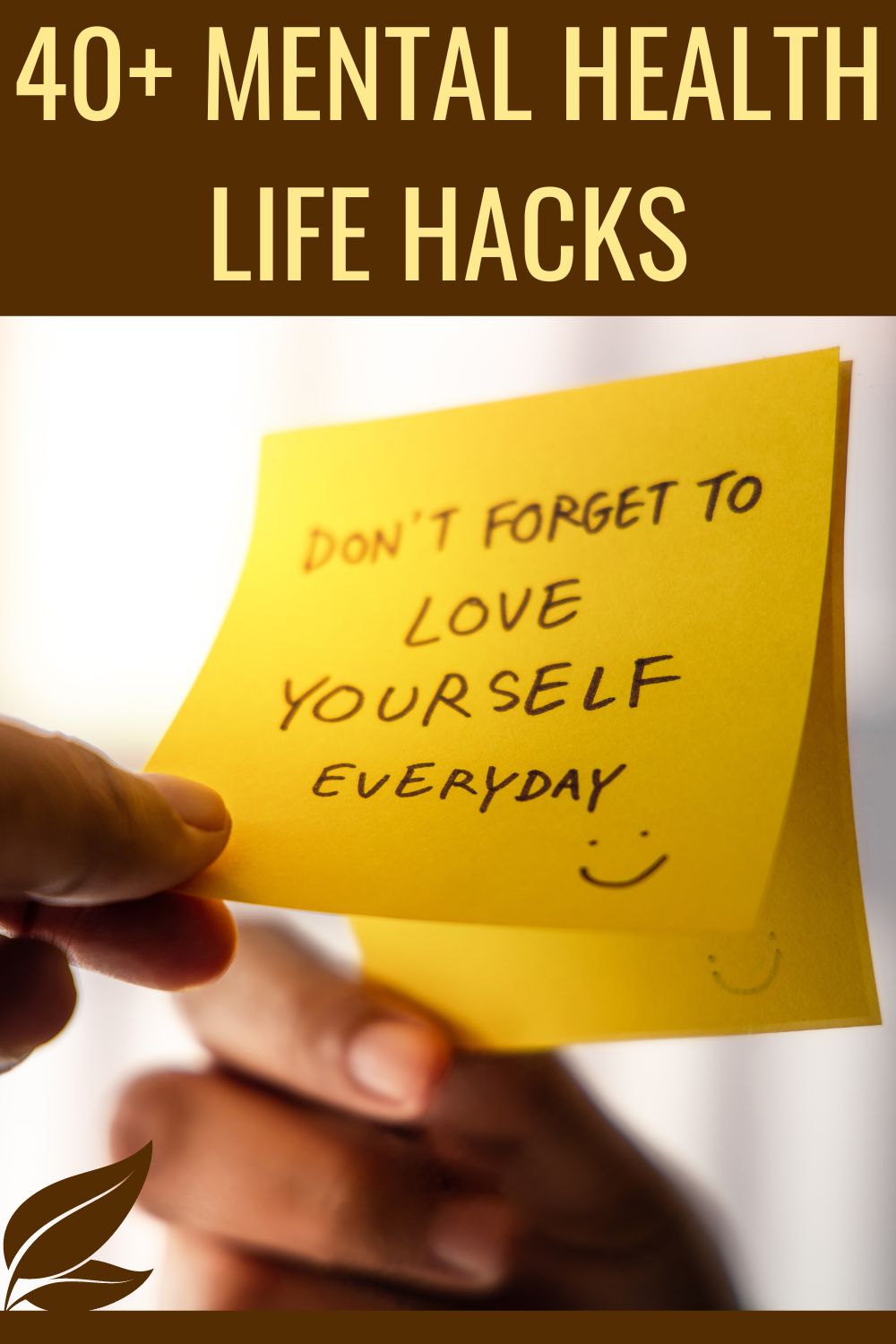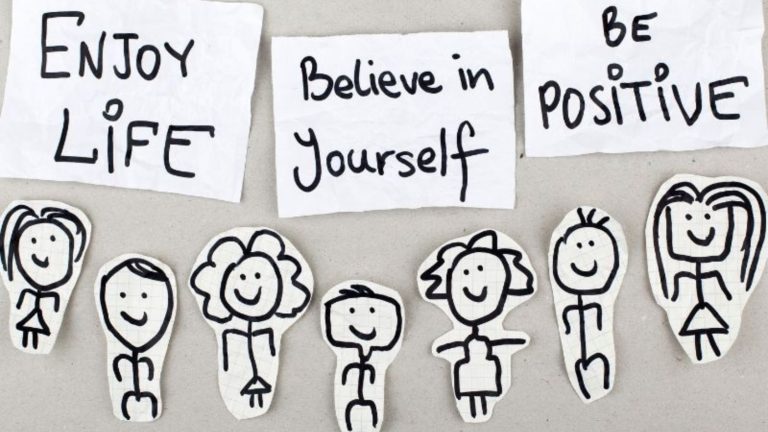40+ Mental Health Life Hacks: Tips and Tricks for a Happier Life
Give yourself the gift of peace and a positive outlook with these mental health life hacks! They make it easier to have a positive attitude even when life throws you challenges.

Especially with the growing mental health crisis, knowing how to support your mental and physical well-being is more important than ever. From dealing with anxiety, coping with mental disorders, and managing constant stress, everyone can benefit from these mental health hacks to make their lives more peaceful and consistent.
Explore these life hacks to make every day a little more enjoyable!
Table of Contents
Understanding Mental Health
Mental health is an essential aspect of your overall well-being. It refers to your emotional, psychological, and social well-being and affects how you think, feel, and act in everyday life. It’s not just the absence of mental illness but the ability to cope with life’s challenges and maintain a positive outlook.
Anxiety and depression are two of the most common mental health disorders affecting millions worldwide. There are many others
Anxiety is a feeling of unease, such as worry or fear, that can be mild or severe.
Depression, on the other hand, is a mood disorder that can cause persistent sadness and loss of interest in activities you used to enjoy.
If you’re struggling with these conditions, seeking appropriate mental health services is important. Connect with a therapist or psychologist to learn healthy ways to cope with negative feelings and overcome bad habits.
However, there are many ways to improve your mood and daily outlook at home. The mental health hacks will make it easier to roll with the punches and stay positive even when life gets complicated!
Mental Health Life Hacks: The Impact of Your Lifestyle Choices
Lifestyle choices can have a significant impact on your mental health. A strong relationship exists between mental health and your diet, physical activity, and sleep habits. These daily routines will help you become more positive and deal with stress more flexibly.
Diet and Mental Health

Did you know your food choices can affect your mood and mental health? Eating a healthy and balanced diet can help you feel better and improve your mental health. If you haven’t been eating well for a long time, you may be dealing with nutrient deficiencies affecting your overall well-being.
- Fruits and vegetables are high in vitamins and minerals essential for good mental health. These will increase your nutrient intake, giving your body the essentials it needs.
- Whole grains provide your body with the energy it needs to function properly. They’re also a great source of fiber to support your digestive system and regulate your blood sugar.
- Lean proteins like chicken, eggs, and salmon can give you sustained energy and help stabilize your mood.
- Omega-3 fatty acids – omega-rich foods can help reduce inflammation and symptoms of depression and anxiety.
On the other hand, some foods can negatively impact your mental health, like:
- Processed and junk foods are often high in sugar and unhealthy fats, leading to mood swings and fatigue.
- Sugar – many people with anxiety and depression are especially susceptible to sugar, which can make their symptoms more severe.
- Caffeine – while small amounts of caffeine can be beneficial, too much can cause anxiety and disrupt sleep.
Set yourself up for success. Eat a healthy breakfast daily with proteins, whole grains, and fruits and vegetables. They can also help you regulate your blood sugar to feel calmer and have better energy all day.
Exercise and Mental Health

Regular exercise can help reduce symptoms of depression and anxiety and make it easier to withstand daily stress. They’re a great way to release pent-up energy and offer you peace of mind. Need some accessible ways to start moving your body? Choose an activity below and start with 15-20 minutes daily to reduce your anxiety levels.
- Walking is the easiest and most effective way to get some exercise. It’s especially powerful to spend time in nature every day.
- Yoga can help reduce stress and anxiety and give you a better connection with your body.
- Strength training can help boost your mood and improve your self-esteem.
Sleep and Mental Health

If you’re getting poor sleep, you’re probably dealing with mood swings, irritability, and difficulty concentrating. Sleep is essential to your overall health and can affect every part of your day: from your hunger cravings to your mood and stress levels.
- Stick to a regular sleep schedule: Try to go to bed and wake up at the same time every day.
- Create a relaxing bedtime routine: This can help signal your body that it’s time to sleep.
- Avoid screens before bed: The blue light from screens can disrupt sleep. Limit time on phones or devices for an hour or two before bed.
Dealing with Stress
Stress is a normal, inevitable part of life. It can come from any part of your life, from work stress to relationship issues or financial worries. When stress becomes chronic, it can harm your mental health and strain your body’s other systems.
By learning how to recognize and manage stress, you’ll have an immediate mental health boost and notice more and more benefits over time.
Recognizing Stress
Stop stress in its tracks by recognizing its signs, like headaches, muscle tension, irritability, excess snacking, and difficulty sleeping. Everyone responds to stress differently, so take some time to identify your specific symptoms and triggers.
People who experience chronic, persistent stress can experience burnout and various physical issues. If you’re experiencing any of these symptoms, figuring out where the stress comes from is essential.
- Are you taking on too much at work?
- Is there any unhealthy relationship in your life that’s crossing your boundaries?
- Are you holding yourself to unrealistic expectations?
- Are you giving yourself time for meaningful rest?
Many people with mental health disorders often have higher baseline stress levels and are more susceptible to chronic stress. This is another important reason for seeking appropriate mental health services tailored to your specific mental health condition!
Managing Stress
Everyone manages stress in their way, and positive people tend to have more strategies for this than others. Develop a list of coping skills or stress reduction techniques that work for you and save them somewhere accessible to find when you’re overwhelmed.
- Exercise: Feeling stressed? Hit the gym to release extra energy, or spend some quiet time on a local trail.
- Go outside: Spending time in nature brings your attention back to the real world and out of your head. Spend a few extra minutes of your day on a park bench or just standing outside.
- Pursue fun: Give yourself a chance to tune out of your worries and focus on something you love, like a favorite hobby or new skill.
- Mindfulness: Focusing on being present and monitoring your breath can help you quickly escape a stressful situation. Plus, it will give you some much-needed quiet time.
- Time management: Prioritizing your tasks and creating a schedule can help you feel more in control of your day.
- Relaxation techniques: There are specific methods to help you relax, like deep breathing or progressive muscle relaxation.
- Aromatherapy: Different essential oils can help you feel calm even when life’s stresses get overwhelming, like lavender, sandalwood, frankincense, and clary sage.
- Spiritual practice: Tap into awe and wonder through prayer, attending religious services, or reading religious documents. It can be really powerful to think beyond yourself when life gets too much.
- Social media detox: Limit time on social media to avoid comparing yourself with others. They can also affect how your brain delivers dopamine, making it harder to feel pleasure or satisfaction in other parts of your life.
- Connect with others: Get out of your head and spend time with someone you love.
Mindfulness and Mental Health
For an anxiety-free life, you really need to cultivate a mindfulness practice. It is one of the most powerful and research-backed ways to help you deal with stress, process negative thought patterns, and feel more balance.
What is Mindfulness?
In a nutshell, mindfulness is the practice of being present and fully engaged in the current moment. It is the practice of paying attention to your thoughts, feelings, and surroundings without judgment. We typically associate mindfulness with meditation, but it doesn’t have to be so formal.
Practicing mindfulness has been shown to have numerous mental health benefits. Studies have found that mindfulness can reduce symptoms of anxiety and depression, reduce your heart rate, improve cognitive function, and even lower blood pressure. It’s also a wonderful way to calm an active mind and help you cope with daily stresses in healthier ways.
Meditate: Sit quietly and focus on your breath or a specific object. When your mind wanders, simply bring your attention back to your breath or object. Notice the rise and fall of your chest.
Breathing exercises: There are many ways to regulate your breath, which can help you feel calmer immediately. Try box breathing or the 4-7-8 method to get the benefits right away.
Focus on your senses: Take a few moments to notice the sights, sounds, smells, and sensations around you. Focus on each sense individually, and try to really experience each one fully. This can help you feel more grounded and present in the moment.
Progressive muscle relaxation: Tense all of the muscles in your body. Gradually release them, starting with your head to your toes. Notice the sense of calm that comes over you.
Productivity Techniques for Mental Health
Productivity can be a double-edged sword. On the one hand, being productive can help you feel accomplished and boost your self-esteem. On the other hand, if you’re struggling with mental health issues, getting started with tasks or completing them to the best of your abilities can be challenging.
The trick is recognizing your bad habits and using tools to support you. For example, if you have difficulty remembering things, use a notes app to keep track of your checklists and set reminders. Use technology to your advantage!
The Pomodoro Technique
The Pomodoro Technique is a time management technique that can be particularly helpful for people with mental health issues. The basic idea is to work in short, focused bursts, followed by short breaks. Here’s how it works:
- Choose a task you want to accomplish.
- Set a timer for 25 minutes.
- Work on the task until the timer goes off.
- Take a 5-minute break.
- Repeat steps 2-4 three more times.
- After the fourth Pomodoro, take a longer break (15-30 minutes).
You can avoid getting overwhelmed by breaking your work into short, focused bursts and keep your energy levels up. Plus, taking frequent breaks can help prevent burnout.
If 25 minutes sounds too long, start with 10 or 15 minutes!
Fighting Inertia
When your mental health is poor, it can be hard to get started on anything. Even things you love, like hobbies or spending time with friends, can feel impossible. When you get in one of these low spots, try these tips:
- Start small. Instead of trying to tackle a big project all at once, break it down into smaller, more manageable tasks. For example, instead of trying to clean your entire house, start by unloading the dishwasher or vacuuming.
- Use positive self-talk. When you’re feeling unmotivated, it’s easy to fall into negative self-talk. Instead, positively reframe your thoughts. For example, instead of thinking, “I’ll never get this done,” try thinking, “I can do this one step at a time.”
- Reward yourself. Give yourself a small reward for completing a task. For example, if you finish a work project, treat yourself to a cup of coffee or a piece of chocolate.
- Ask for help: Feeling stuck? Invite a friend over to help you catch up on laundry or meal prep some healthy food. Plus, you’ll get some contact with people to get out of your head.
Emotional Wellbeing and Happiness
To really take this mental health challenge to the next level, prioritize your emotional well-being. Taking care of your body by eating well and getting some activity is important, but you can make a huge difference by adjusting your mental outlook.
Positive Thinking
Positive thinking is a powerful tool for improving your emotional well-being. Focusing on the good things in your life and adopting a positive mindset can reduce stress, boost your mood, and increase your overall happiness.
- Practice gratitude: Take a few minutes each day to reflect on the things in your life that you are thankful for, like a beautiful sunset or a nice meal.
- Surround yourself with positivity: Seek out uplifting and inspiring people, books, and media. Avoid negative people and try to reframe negative situations in a positive light.
- Use positive mantras: To reframe negative thoughts, keep some powerful phrases in mind, like “I love myself” or “I deserve happiness.”
Self-Care

You can’t pour from an empty cup. You will have difficulty regulating challenging emotions and stress if you neglect self-care or work too much.
Set some boundaries: if you are a people pleaser or have been overcommitting at work, set some life boundaries and prioritize your personal growth.
Rest: There are many different types of rest, ranging from actual sleep to creative play. Take time to read a good book, sit in the sun, or unwind with loved ones.
Take a mental health day: This is a day dedicated to doing things that make you feel good, such as taking a long bath, journaling, or going for a long drive.
Care for your body: Your moods will not be regulated if your body’s needs are unmet. Support your physical health by eating healthy food, sleeping regularly,y and exercising at least a few times per week.
Smile: Smiling has been shown to reduce stress, boost mood, and increase feelings of happiness. Smiling can change your mood immediately, even if you don’t feel like it.
Additional Resources
To support your mental health, sometimes you need a team and a well-stocked toolkit of resources. You may need to find a therapist or connect with an online community to help you get the support you need. If you’re struggling to find support in your area, consider these mental health resources:
- National Alliance on Mental Illness (NAMI) is a non-profit organization that provides education, support, and advocacy for individuals with mental illness and their families. They offer a helpline, support groups, educational programs, and more.
- Mental Health America is a community-based non-profit organization that promotes mental health and wellness through education, advocacy, and support. They offer a variety of resources, including screening tools, educational materials, and support groups.
- Therapy: Therapy can be an effective resource for managing mental health symptoms. Many different types of therapy are available, including cognitive-behavioral therapy (CBT), dialectical behavior therapy (DBT), and more. You can find a therapist through your insurance provider, online directories, or recommendations from friends and family.
Remember, there is no one-size-fits-all solution when it comes to mental health. Finding what works best for you and seeking help when needed is crucial.
If you are experiencing severe symptoms or are in crisis, please seek immediate help by calling the National Suicide Prevention Lifeline at 1-800-273-TALK (8255) or go to your nearest emergency room.




